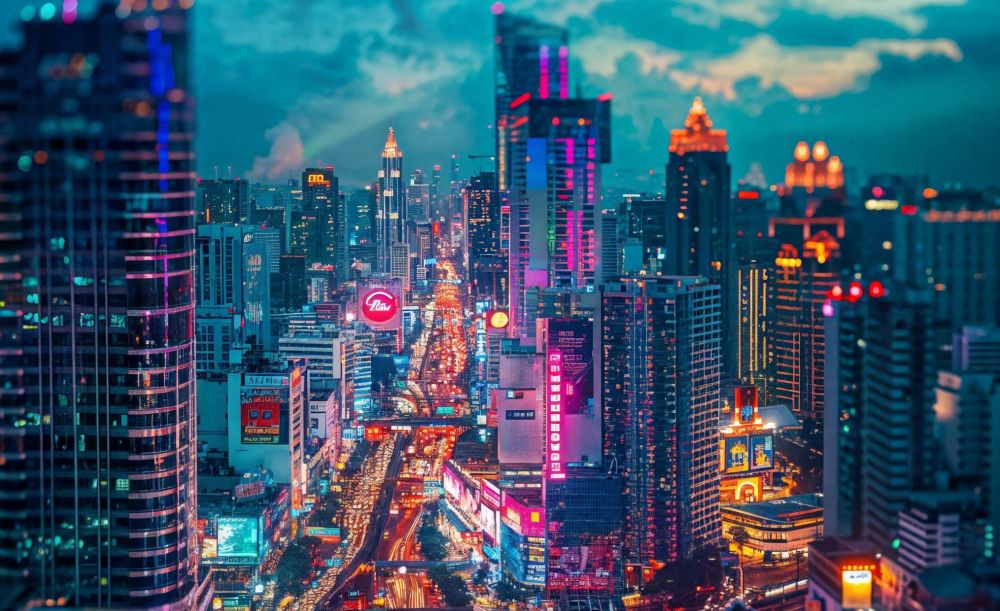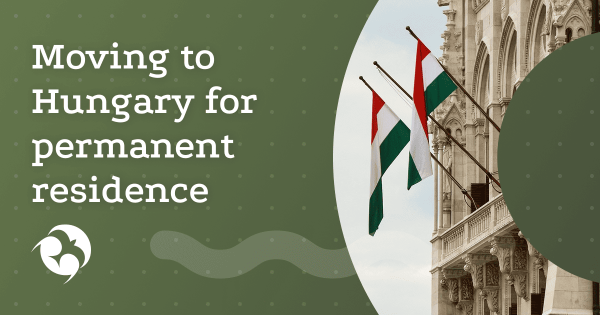The country’s Cabinet of Ministers has approved new types of visas to promote tourism and attract foreign professionals.The expected profit from immigration projects is estimated at 850 billion – 1 trillion baht ($27.3 billion). The opening of the nomad program in Bangkok was announced on May 15, 2024. The law on the 5-year multiple-entry Destination Thai Visa has been published in The Royal Gazette. General information can be found on the official website. Details will appear within a month on the official Thailand resource.
For $270 (10,000 baht), they have the right to extend their stay for another 180 days and live in the country for a total of one year. Subsequently, to reset the six-month period, foreigners can make one-day border runs to neighboring countries. Applicants planning to move to remote work in Southeast Asia need a deposit of $14,000.
Specifics of Thailand’s Freelance Visa
The government faced a strategic task of attracting people capable of contributing to the country’s economic and technological development. This led to the approval of the DTV program for digital nomads and remote work (workcation) in March 2024. The visa initiatives adopted by the kingdom will help attract wealthy specialists from 93 countries along with their families.

- We will answer all your questions
- We will help you choose the best option
- We will guide you through every step or do everything for you
The nomad project became an alternative to the long-term LTR visa (5+5). It is issued on the condition of receiving an income of $80,000 per year. Currently, it is targeted at investors, qualified professionals, and wealthy retirees. The examples of Malaysia and Indonesia, which have launched digital programs, inspired the changes in conditions for foreigners. However, compared to them, Thailand has more democratic financial conditions. Malaysians require proof of an annual income of $24,000, while Indonesians require a deposit of $60,000.
Who Can Get a DTV Visa
Eligible applicants include:
- IT specialists;
- employees from various fields;
- freelancers and self-employed individuals;
- people in creative and educational professions.
The list also includes athletes practicing Thai boxing and martial arts, participants in cultural events. People coming to the country to study culinary arts, music, or fine arts can also apply. The law allows for a change in visa type, but obtaining residency on another basis exempts participation in the DTV program.
Foreigners are prohibited from employment in local companies, selling goods, providing commercial services, or receiving income/compensation. Every 3 months, they will be required to submit reports to the immigration service to confirm their stay in the country.
Requirements for Obtaining a Nomad Visa
It is expected that applicants can submit their applications at the Thai Immigration Service consulate or on the website thaievisa.go.th.
Document package:
- Passport and documents for all family members to confirm their relationship with the applicant: birth and marriage certificates. If the application is submitted abroad, a residence permit from the country of residence is required.
- Bank statement confirming the amount of 500,000 THB ($14,000) in the account.
- Work contract with a company outside Thailand or a letter from a Thai medical institution confirming payment for treatment.
- People in creative professions must attach contracts/invitations from event organizers or educational institutions, along with a professional portfolio.
- If requested – a certificate to confirm the place of work and position.
- Medical insurance with a minimum coverage of $50,000.
Self-employed individuals/entrepreneurs need to attach a business registration certificate, a license to operate, and a tax declaration. The list of official documents may be periodically updated, so it is essential to check the list and conditions for submitting documents on the Thai consulate’s website before applying. The application review period is expected to take no more than a month.
What Taxes Do Freelancers Pay?
Residents are required to pay percentages under Article 41 of the tax code on income earned within Thailand and abroad. Digital nomads automatically gain taxpayer status after 180 days. It is expected that, along with targeted professionals and LTR visa holders, they will pay 17% instead of 35%.
Tax table for digital nomads, freelancers and the self-employed
| City name | The amount of tax | Note |
| New Year for national republics | Interest rate from 0% to 35% | We appeal to the leaders, we hope that they will spend more than 180 days a year. Enjoys the whole world |
| Income tax from Thai sources for foreigners | 15% | For persons staying in Thailand for less than 180 days and receiving income from Thai sources |
| Additional tax for highly targeted users worldwide | 17% | Only for the category “Highly qualified specialist” are you a permanent resident |
| Income tax on products from foreign sources | 0% | For foreigners or were these countries that do not transfer to Thailand, including the calendar year |
| Personal income tax (VAT) | 7% | On goods and services purchased in Thailand |
The following progressive scale of taxation applies to tax residents of Thailand
| Annual income (BAHT) | New article | The price is shown in US dollars |
| 150,000 dirhams | 0% | total $4050 |
| 150,001-300,000 | 5% | ≈ $4,050-$8,100 |
| 300,001-500,000 | 10% | ≈ $8,100-$13,500 |
| 500,001-750,000 | 15% | ≈ $13,500-$20,250 |
| 750,001-1,000,000 | 20% | ≈ $20,250-$27,000 |
| 1,000,001-2,000,000 | 25% | ≈ $27,000-$54,000 |
| 2,000,001-5,000,000 | 30% | ≈ $54,000-$135,000 |
| More than 5,000,000 | 35% | >$135,000 |
How Much Does a Visa Cost?
The cost depends on the currency. In Germany or Belgium, it costs 350 EUR, in Hong Kong – 3,000 HKD, in Malaysia – around 1,600 MYR. In the case of an extension, the declared amount must be paid again.
Latest changes in visa policy
The authorities didn’t stop with the opening of the nomad program. After testing the updated regime from July 15, they unilaterally replaced the temporary 2-month visa-free period with a permanent one. People arriving in the country for wintering in Bangkok, Chiang Mai, or Samui can extend their stay by another 30 days.
The law did not affect those who have lived on a long-term LTR visa for 10 years. As of March 2024, only 888 people applied for it. The workcation situation is expected to be different due to the lowering of the financial threshold.
Information will be updated when additions and changes are made to the Digital Nomad law.
Frequently Asked Questions
The DTV (Destination Thailand Visa) visa is issued for 5 years from the date of approval of the application. The visa holder can enter and leave Thailand multiple times. The right to stay for up to 180 days per visit is reserved.
Up to 180 days per entry. This rule applies from the moment of the first border crossing and does not require additional permits. The 180-day period starts counting down anew with each new entry into the country. Even if the previous stay period has not expired yet.
DTV is a multivisa with an unlimited number of entries during its validity period. Each border crossing automatically activates a new 180-day stay period. It can be extended for another 180 days without leaving the country.
Yes, the DTV visa can be extended for 180 days without leaving the country. It is necessary to contact the immigration office at the place of residence and provide proof of financial viability (account balance of at least 500,000 baht). The cost of the extension is 1,900 baht.
You can extend your stay every time you enter the country. For example, the visa holder left 60 days after the first entry. If they cross the border again, they will receive a new 180-day period, which can also be extended. Thus, the total duration of a continuous stay can reach 360 days (180 + 180) without the need to leave.
After the expiration of the DTV, a new application must be submitted. Re-registration requires the provision of a complete set of documents, including updated financial statements and proof of professional status. The application can only be submitted outside of Thailand.
The standard processing time is from 2 to 5 weeks. However, during peak seasons or when consulates are heavily loaded, the time may increase. For example, in the embassies of the USA and EU countries, the review is often completed faster – in 3-4 weeks. The personal experience of some applicants shows that if there are no errors in the documents, approval can be obtained within 10-14 days.
Yes, many consulates offer express processing for an additional fee. In this case, the period is reduced to 1-3 weeks. For example, in the consulates of Germany and France, an expedited procedure costs 350 € and allows you to obtain a visa in 7-10 business days.
The passport must be valid for at least 6 months from the date of the visa application. Also, the passport must have at least 2 blank pages for the visa.
The photo must have been taken within the last 6 months. It should be a standard passport-size photo on a white background.
It is required to confirm the presence of at least 500,000 baht (about $15,000) in the bank account. The bank statement should show this minimum balance for the last 3 months.
Depending on the status, the following documents are required:
- For employees – an employment contract or a certificate from their place of work (confirming the possibility of remote employment).
- For freelancers – professional portfolios and/or contracts with clients.
- For business owners, there are company registration documents.
Yes, in addition to the bank statement, you also need to provide a certificate of income.
All documents must be translated into English and notarized.
You will need to provide a certificate of business opening or registration.
Family members (spouses and children under the age of 20) must provide documents confirming kinship – a marriage certificate for the spouses and a birth certificate for the children. Separate applications are submitted.
The visa fee varies from 9,669 to 38,797 baht, depending on the country of application. For example:
- Russia, Uzbekistan, Vietnam – $350-400 (≈11,453–13,475 baht);
- USA, Kazakhstan – $400 (≈13,475 baht);
- European Union – 350€ (≈12,829 baht);
- India – 25,000 INR (≈9,669 baht).
The fee is paid in the local currency.
The following are added to the base fee:
- Notarization of documents – $50-150;
- Translation of documents into English – $20-50 per page;
- Medical insurance – $100-300 per year;
- Agency services – $200-500.
The total amount of additional expenses can reach $1,000.
A 180–day extension will cost 1,900-1,000 baht, depending on the immigration office. For example, in Bangkok, the standard fee is 900 baht, in tourist provinces – up to 10,000 baht.
Yes, but this will invalidate the DTV. The cost of changing the status depends on the category of the new visa:
- Work visa – from 2,000 baht.
- Study visa – from 1,900 baht.
Each family member (spouse/children under 20 years old) pays the full visa fee.:
- Child – 9,669–38,797 baht;
- Spouse – a similar amount.
Thus, a family of three will spend up to 116,391 baht on fees alone.
No, the fee is non-refundable, even if the application is rejected due to errors in the documents.
- Tourist visa: 60 days for $40, but requires frequent trips.
- LTR visa: valid for 10 years, but requires an income of $40,000 per year and investments.
- Education Visa: 1 year for 1,900 baht, but requires attendance of courses.
DTV is more economical for long–term nomads: 5 years for 9,669-38,797 baht versus $200 per year for tourist visas.












